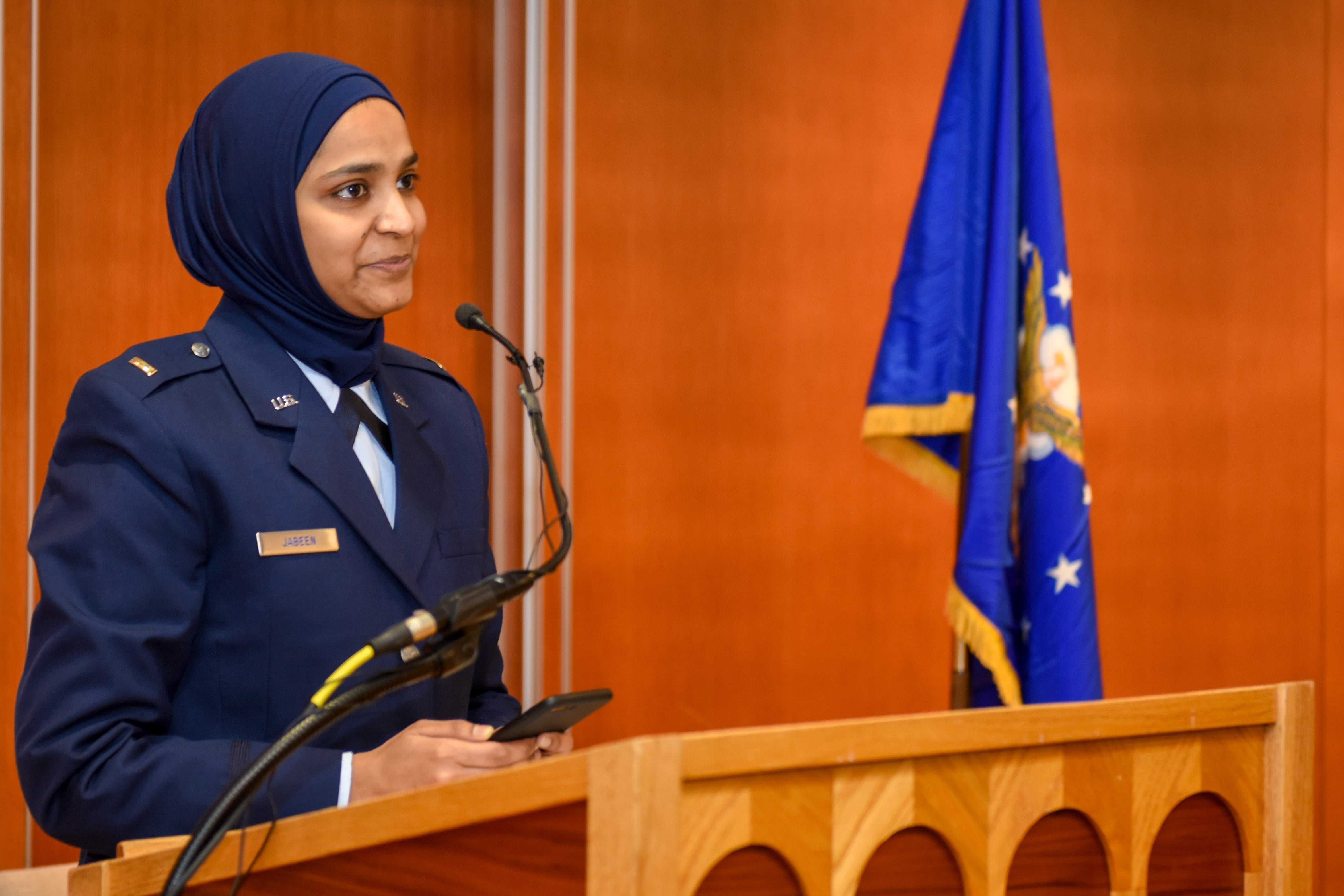Washington National Cathedral on Sunday posted online a photograph of clergy, alongside the Air Force’s chief of chaplains, blessing a Bible for the newly created Space Force — and a firestorm of controversy soon followed.
In the tweet, the cathedral called it “the official Bible for the new” Space Force, and said it “will be used to swear in all commanders of America’s newest military branch.”
Reaction on social media was swift, with many commenters raising concerns about the potential violation of the First Amendment’s establishment clause, which prohibits government actions favoring one particular religion over another. Some questioned whether the cathedral’s statement that the Bible will be used to swear in “all commanders” in the Space Force meant non-Christians would be excluded, even implicitly.
“So no Jews, Atheists, Muslims, Hindus, Mormons, Sikhs allowed in Space Force?” Princeton professor Steven Strauss tweeted in response.
But in an email Monday, Air Force spokeswoman Lynn Kirby said the description of the book as the official Space Force Bible is incorrect. And, she said, using it will not be required for commanders.
“In keeping with the Department of the Air Force historical tradition when swearing in a new service chief, the Bible mentioned in the tweet will be used during the swearing-in ceremony for the first chief of space operations,” Kirby said. “This option will remain a personal choice for each individual swearing in.”
Gen. Dave Goldfein and retired Gen. Mark Welsh, among others, were sworn in to serve as chief of staff of the Air Force while placing their hand on a Bible, according to photographs on the Air Force’s website. Goldfein spokeswoman Lt. Col. Teresa Sullivan said in an email that particular Bible is used by each incoming chief of staff at swearing-in ceremonies.
Kirby said the first Air Force chief of staff, Gen. Carl Spaatz, purchased the Bible used by subsequent CSAFs. But while it is a tradition, she said, there is no requirement that it be used.
“This historical tradition is only related to the swearing in of a new service chief and does not extend to any other personnel,” Kirby said. “There is no official religious or other sacred text, nor is there any requirement for a member to use any sacred or religious text during swearing-in ceremonies.”
The Military Religious Freedom Foundation, an organization that advocates for separation of church and state in the military, strongly condemned the blessing ceremony as sectarian, as well as objecting to the in-uniform participation of Chief of Chaplains Maj. Gen. Steven Schaick.
“For the record, military commanders are NOT ever ‘sworn in’ to their positions, let alone with the usage of a Christian Bible or other book of faith,” MRFF president Mikey Weinstein said in a release. “And especially not in 2020!”
RELATED

Weinstein said MRFF has received many complaints from service members, Defense Department civilians and veterans, and plans to file a formal complaint to Defense Secretary Mark Esper. MRFF also plans to help its clients make formal inspector general and Equal Employment Opportunity complaints to stop the Bible from being used in this way.
MRFF also plans to sue in federal court if administrative remedies fail, saying using a Bible to swear in commanders of any military service violates several DoD regulations, as well as the First Amendment and the principle of the separation of church and state.
Washington National Cathedral spokesman Kevin Eckstrom said in an email that the Bible will be used to swear in Gen. Jay Raymond as the first chief of space operations for the Space Force. It is a King James Bible donated by the Museum of the Bible in Washington, Eckstrom said.
The Very Rev. Randolph Hollerith, dean of the cathedral, and the Right Rev. Carl Wright, bishop suffragan for the armed forces and federal ministries in the Episcopal Church, also conducted the blessing ceremony, Eckstrom said. He referred all other questions to the Air Force.
Stephen Losey is the air warfare reporter for Defense News. He previously covered leadership and personnel issues at Air Force Times, and the Pentagon, special operations and air warfare at Military.com. He has traveled to the Middle East to cover U.S. Air Force operations.





